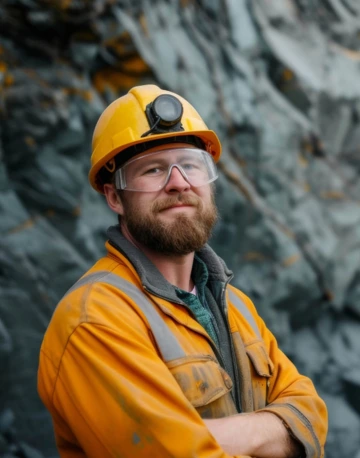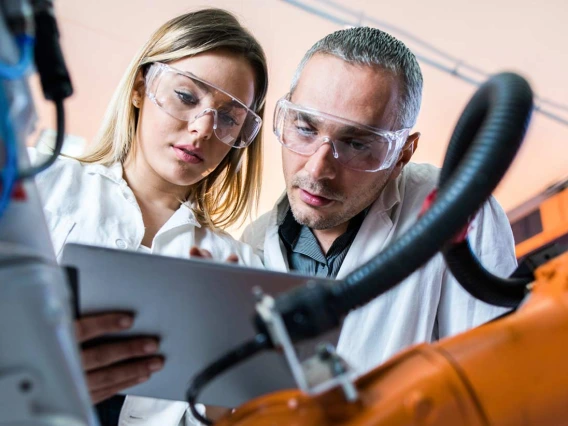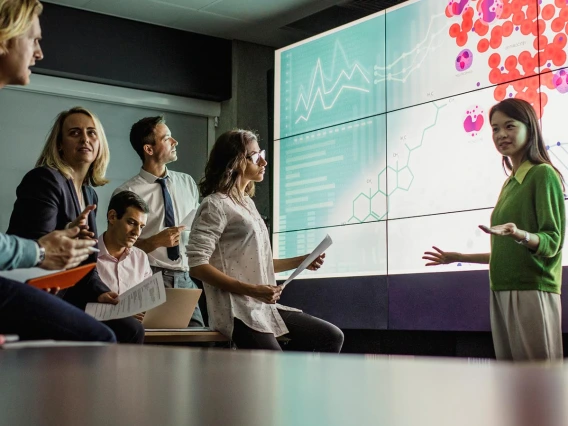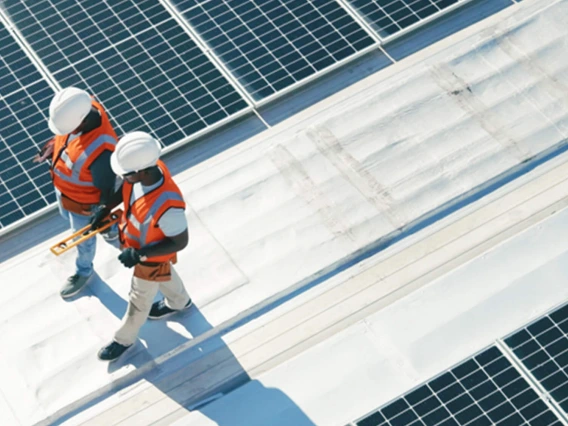Mining, Geological and Geophysical Engineering
Master of Engineering
Quick Facts

Top 1%
of all Higher-Ed
Institutions
- Center for World University Rankings, 2024
University in Arizona
- U.S. News & World Report, 2021
The Mining, Geological, and Geophysical Engineering field offers some of the highest-earning engineering careers, as well as opportunities to develop sustainable solutions that will power our future. The University of Arizona online Master of Engineering in Mining, Geological, and Geophysical Engineering is one of the only online programs of its kind, featuring courses taught by a faculty of groundbreaking researchers in mineral engineering and the science of non-renewable resources.
You’ll gain an advanced understanding of core technical principles while pursuing coursework in finance and management, natural resource law, and other administrative concerns. Armed with this focused skill set, you’ll be well prepared to pursue mining and geological engineering roles and other opportunities in the field. Expert researchers and industry executives lead each mining engineering online course, which features a curriculum that blends live instruction with a convenient, asynchronous online format.
Mining and material production provides the building blocks for products and technologies essential to industries and the global economy. Earning a mining and geology master’s online empowers working professionals to enhance their career prospects. Most part-time students complete the program in 18-24 months. The program is a perfect fit for aspiring and practicing engineers, those looking to make a career change to mining or a related field, and others with an interest in mining.
*Residents of some U.S. Territories may not be eligible. Please see our Eligibility & State Authorization page for more information.
Core courses for this program include:
Univariate probabilistic and statistical methods: data reduction, basic probability concepts, discrete and continuous probability distributions, sampling distributions, confidence intervals, goodness-of-fit-tests; applications in geologic media. Introduction to a few statistical packages. Graduate-level requirements include an in-depth term paper on an application.
| Methods of excavation of rock in surface and underground mines and construction, ranging from the empiricism of conventional blasting practice to the application of the fundamental mechanics of rock fracture. Graduate-level requirements include a research project. |
| Fundamental concepts in the recognition, evaluation, and control of health and safety hazards encountered in mining operations include a review of engineering management responsibilities to control accidents, a review of federal regulations and standards affecting the industrial workplace, and instruction regarding the interaction of industrial hygiene, safety, fire protection and workers' compensation to control losses resulting from industrial accidents. Graduate-level requirements include a term paper. |
Principles and procedures in mineral property valuation, time value of money fundamentals. Ore reserve estimation using geostatistics techniques, cut-off determination, and engineering economics. Investment analysis of actual mining and non-mining industries. Development of criteria for Discount Rate selection. Case Studies of actual mining companies and how they address economic and technical challenges for sustaining the production of mineral commodities. Graduate-level requirements include a research project, a complete lecture, or a research paper at the instructor's discretion.
A senior-level course in open pit mine design and planning, incorporating the principles from prior mining and engineering courses. Functions of a mine engineer include the mine development process, resource and reserve analysis, economic pit limit determination, pit and phase design, production planning, cash flow analyses and social and environmental considerations. Laboratory design problems and work are associated with typical mine design and planning functions by using the MinePlan software.
| This course will provide a basic understanding of the fundamental and practical aspects of solution mining. Graduate-level requirements include more rigorous and analytical homework. |
| There is a major change in the search for new sites to extract minerals and other natural resources located outside of the Earth. In particular, the Moon has been designated as the next destination for mining operations. This could comprise base metals, construction materials, rare earths, and water, the latter a resource that may create high expectations for its value for the off-world human settlements. The central aspects of this course are the mining methods and techniques for successful technical and economic production. Equipment and technologies specially designed for working under the unique conditions found on the Moon (low gravity, extreme temperatures, drastic changes from intense light to absolute darkness, high radiation, and the lack of atmosphere) are also considered in the design of the sites for pioneering mining operations on the Lunar surface or underneath. Open-source tools will be used to manage topographical maps and solid modeling shapes to produce production plans, economic assessments, and realistic animations representing proposed production projects. |
| This graduate seminar allows graduate students to research and exchange information on technical topics in the mine life cycle. The course will feature industry speakers presenting current challenges or technological innovations in the broad area of mineral resources. Students will further develop their skills in technical writing, learn to communicate with a professional audience, learn skills to influence others and gain a basic knowledge of the business and socioeconomic principles that impact the profession. |
Outcomes
Skills
Earning your Master of Engineering in Mining, Geological and Geophysical Engineering will build core skills, including:
- Explosives engineering
- Mine operations
- Project management
- Range planning
- Rock mechanics
- Safety standards
- Technical reports
- Ventilation
Potential Career Paths
The industries employing the most professionals who would benefit from the Mining, Geological and Geophysical Engineering (ME) program include:











